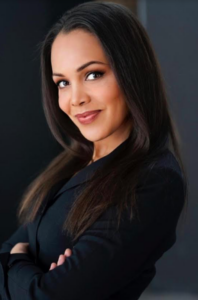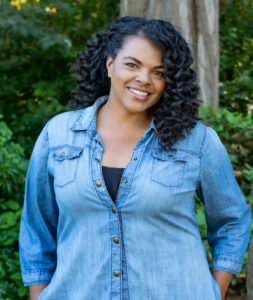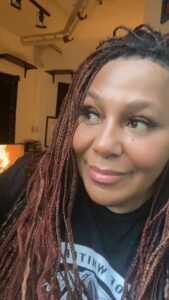BWSS joins the African American community and communities across the world in commemorating Juneteenth by announcing the formation of an advisory committee committed to advancing equity for Black women, girls, and gender-diverse people
A message from the Advisory Committee on Advancing Gender Equity for Black survivors of violence
Juneteenth is a Black English colloquialism written as a contraction of the words June and nineteenth, representing June 19th, 1865, the date the last enslaved African was freed from chattel slavery in the United States of America. Though originating in the United States, Juneteenth has relevance in Canada by recognizing the presence of descendants of enslaved Africans, people who have immigrated to Canada from the United States and other regions in the Americas. It is also the acknowledgement of the impact of slavery has on the descendants of enslaved Africans across the Americas and the intergenerational trauma and the psychological and physiological effects of trauma while connecting the larger African diaspora.
Canada has not reached gender and racial equity, as an examination of the lives of Black women, girls and gender-diverse people reveals.
As we wrote in the Colour of Violence: Race, Gender, and Anti-Violence Services, one of the least remarked upon themes in anti-violence work deals with Black women’s and gender-diverse people’s experiences as victims of rape and domestic violence. Black, African, and Caribbean diasporic women and gender-diverse people experiencing gender-based violence must navigate historical, societal, cultural, and familial prompts that sanction and silence us from disclosing their experiences of violence. Black women who experience violence in relationships, including sexual assault, must also confront societal, cultural, and familial cues that silence them from speaking up about their experiences of violence.
Existing Canadian data suggests that the prevalence of intimate partner violence among Black women is disproportionately high (42%) when compared to the total visible minority population (29 %). Yet, disaggregated data on the specific experiences of Black survivors remains sparse, and even more so when accounting for the very different cultural, linguistic, immigration, class, and other backgrounds of Black women.
As Paulette Senior, CEO of the Canadian Women’s Foundation, comments, “When it comes to gender-based violence, the unique needs and experiences of Black women, girls, and Trans and gender-diverse people have been ignored. This has left many stories unheard and have left many abuses unaddressed.”
In the era of Me Too, where Black survivors struggle to have society recognize the ways that we are disproportionately impacted by gender-based violence. Additionally, Black women, girls and gender-diverse peoples bear a ‘double burden’ – to either protect ourselves or our partners who were responsible for causing us harm. The possibility of reporting acts of gender-based violence to a system that is embedded in anti-Black racist attitudes is one that gets overlooked, often with deadly consequences for Black women who are left unprotected by the system, by the community and by society at large.
By not prioritizing sexual violence, intimate partner and family violence and other forms of gender discrimination against Black women, girls and gender-diverse peoples, the message that is being sent is clear – that our human rights are secondary, our trauma is inconsequential and that the perpetrators of these harms, including the state, can act with impunity and not be held accountable. This lack of accountability is also evident in the high rates of violence against Black Trans Women.
Commemorating Juneteenth is another opportunity to centre the fact that Black women, girls, and gender-diverse peoples have every right to live lives free from all forms of violence and ensure that the municipal, provincial, and federal governments work diligently to ensure equitable protection.
Since February 2017, BWSS has operated a specialized program for Black Women. On June 19th, and all year round, BWSS supports Black survivors and acknowledges the political, social, and economic barriers that may prevent Black survivors from seeking support for experiences of intimate partner, domestic and/or sexualized violence.
For more information, please email endingviolence@bwss.org or our website www.bwss.org
Meet the Advisory Committee
 Arlana Marie Green
Arlana Marie Green
Arlana Marie Green is Black female artist and athlete who currently works in the Film and TV industry as a Stunt Woman and Actress. She has a background in the Not-for-Profit sector working at a Transition House for women escaping Intimate Partner Violence as well as working for a Rape Crisis Centre in Victim Services, Medical Support and Counselling.
Arlana has participated in many projects and actions and has spoken out against Violence against women and been a strong voice for Women’s rights in BC. She currently co-facilitates a support group for Black Female Survivors of violence at BWSS and is very happy to be joining the Advisory Committee that is committed to advancing Gender Equity for Black Women, Girls & Gender diverse People in BC.
 Patrice Jefferson
Patrice Jefferson
Hello, my name is Patrice Jefferson, and I am a Black woman who’s lived and worked in BC my whole life. I’ve dedicated a body of my work to supporting women experiencing violence in relationships on the frontlines and in transitional housing. As having had my own personal experiences with both racism and violence in relationships, I have a special interest in bringing about change and awareness to these areas. Advocating and supporting women has been both rewarding and healing in the same breath. By joining forces with BWSS on the Advisory Committee I expect to make a healthy change in the way black women are seen and treated and how we see ourselves.
 Angela Marie MacDougall
Angela Marie MacDougall
Through her community-based organizing, frontline work, and activism over three decades, Angela Marie MacDougall has been deeply involved in movements for ending gender-based violence. Since the 1990s, Angela has developed training curricula from an intersectional and anti-oppression framework while her work as a trainer with community-based organizations, systems players, universities and in the larger public sphere has always emphasized the influence of a community-based response toward gender, racial, and economic justice. Angela was co-chair of the Supports for Survivors, and their Families pillar of the Roadmap to a National Action Plan on Gender-based Violence. She co-created a national caucus on Advancing Gender Equity for Black Women and Girls in Canada. She is a board member for the BC Society of Transition Houses sitting as a ‘member at large’. Angela is currently the executive director of BWSS Battered Women’s Support Services Association. Established in 1979, BWSS works to end gender-based violence through the delivery of support services and working for institutional and systemic change.




